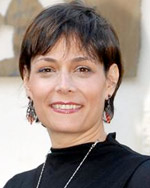By Leah Garber
The bright lights of Hanukkah have faded, leaving us in 2020’s darkest days—literally. With COVID-19 cases and deaths increasing, we are isolated, once again, in a third lockdown that is imposing new, harsh restrictions.
Our world has closed, and we are left on our own to mourn more than 3,000 dead in Israel; support the unemployed; and evaluate widespread damage to our economic, social, and health infrastructure—along with life as we previously knew it.
The political arena also erupted in ugliness this year, exposing politicians’ faults and shortcomings. Barely recovered from three election campaigns, a failed unity government, and faint hope the country will come together or rebuild its public trust, Israel is preparing for a third consecutive winter of elections. We are exhausted, disappointed, and, most of all, longing for sanity on all fronts.
But not everything has been bad in 2020.
For Israelis, 2020 marked a blessed new day for the region. For the first time, neighboring Arab countries, one after another, are signing normalization agreements with Israel. Morocco, which recently signed, is the seventh Arab country to recognize Israel’s right to exist, after Egypt’s 1979 and Jordan’s 1994 peace treaties. The agreement with the Moroccans followed the Abraham Accords with Bahrain and the United Arab Emirates and the agreement with Sudan.
Dubai, a favorite tourist destination for Israelis, who fill the streets with Hebrew, is like an extension of Tel Aviv—just warmer and with more skyscrapers and fewer pandemic restrictions. During the eight nights of Hanukkah, hanukkiyah were lit throughout the city, Israeli artists performed in Hebrew, and Israeli business professionals are being courted for trade and other collaborations. Unlike in Jordan and Egypt, it is clear the citizens of Dubai are as excited as their leaders about normalizing the relationship with their Israeli neighbors.
The sum of the geopolitical, social, economic, and strategic impacts is far greater than its parts, leading Israel into a new era, one that I hope will convince our Palestinian neighbors to abandon rivalry and terrorism and join the regional peace party.
However, until the long-awaited peace with our Palestinian neighbors arrives, the battle to reach continues to take a blood toll once again. Last week, Esther Horgan, a mother of six left her house in the afternoon for her daily jog in the woods near her home. She never completed that jog, and she never returned home. After hours of looking, searchers found her body. Esther died in agony, her skull crushed by bloodthirsty terrorists. An innocent, life-seeking woman paid the price so many others did before her—the price of hatred and rivalry.
Later that same day, a terrorist tried to kill Israeli soldiers in the Old City. He was neutralized on the spot.
These two painful reminders draw us back to our daily reality, in which existential peace is still far away.
So, we walk past it, sometimes dance around it, and occasionally hop over the extremely delicate seam between our daily existence and its hardships and the bright future that awaits us. As Theodor Herzl wrote nearly 120 years ago, it is a future that “if [we] will it, it is no dream.”
The regional peace euphoria and the opening of new exotic tourist destinations for Israeli travelers are closer than ever and a bright spot at the end of this most difficult year.
There are others, as well, worthy of our recognition and appreciation.
Prime Minister Netanyahu and the Minister of Health received their COVID-19 vaccines live, immediately followed by all medical teams and elderly populations in Israel. To date, Israel is the global leader among countries inoculating citizens and seeks to vaccinate half of the population within 30 days. At that rate, Israel will contain the pandemic within two months, dramatically reducing hospitalizations and deaths.
But more than the blessed new peace agreements and the vaccine, 2020 was filled with silver linings that brightened our realities daily.
All Jewish Community Centers and Jewish Community Camps (JCCs) across North America, Israel, and around the world, like other social institutions, had to pivot immediately, adjusting their programming and devising solutions to provide members with the most needed ingredient for survival—the sense of belonging, the feel of community. I’m at awe of the creativity, persistence, and commitment JCC professionals demonstrated to lead and bring communities together in new and effective ways.
The “Zoom fatigue” so many experience may have its downsides, but it’s also driving us to do more and do it better. In 2020, more JCC members joined online gatherings than ever before, actively listening, learning, arguing, celebrating, and, most of all, sharing in our movement’s success.
Most recently, thousands of JCC members from Israel, North America and around the world participated in Zionism 3.0, an annual conference of the Oshman Family JCC in Palo Alto, California. This year’s week-long online event featured extraordinary thinkers, remarkable doers and makers, and outstanding leaders, all of whom inspired participants to strive for a shared sense of Jewish peoplehood that includes diversity and pluralism to lead us to unity not uniformity.
Indeed, these many silver linings illuminated the virus’ fog and pushed away the mist, leaving us with a true sense of appreciation for what we, together, accomplished in 2020. Perhaps it wasn’t the worst year after all…
 Leah Garber is a vice president of JCC Association of North America and director of its Center for Israel Engagement in Jerusalem.
Leah Garber is a vice president of JCC Association of North America and director of its Center for Israel Engagement in Jerusalem.
Leah, this is a good report. You have written what all of us are feeling. Let’s hope 2021 brings a brighter, healthier, peaceful new year.
Much love,
Ann